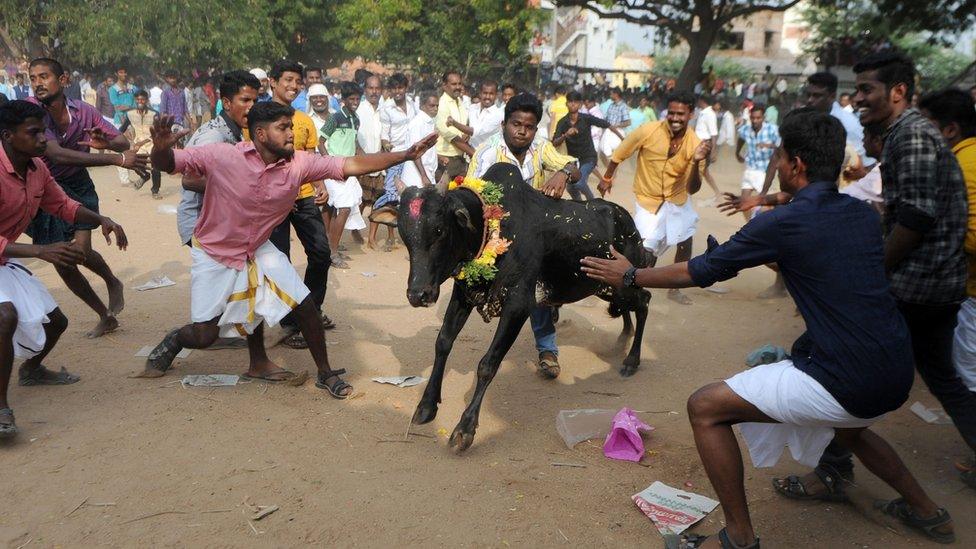Srinivas Gowda: 'India's Usain Bolt' says no to national trials
- Published
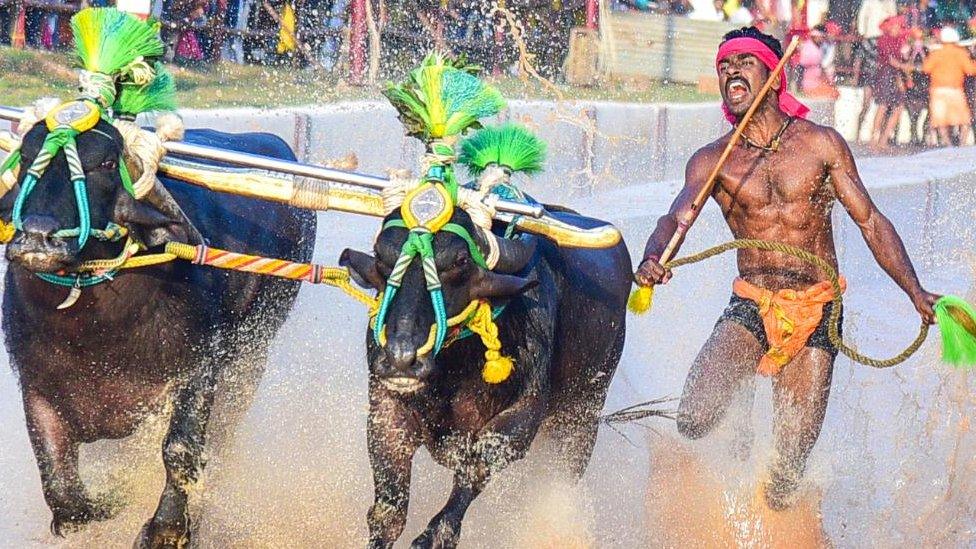
Srinivas Gowda also praised the efforts of his teammates, the two buffalo
An Indian buffalo racer who is being compared to Olympic sprinter Usain Bolt has rejected an official offer inviting him to participate in national trials.
Srinivas Gowda, 28, broke the record in Kambala, a sport where people sprint 142m through paddy fields with buffalo.
He is said to have finished in 13.42 seconds, while Bolt holds the world 100m record of 9.58 seconds.
News of his feat spread through local news and social media, prompting an offer from the sports minister.
But Mr Gowda told BBC Hindi that he will not be able to go for the national sprint trials. "I have injured my leg and my focus is on Kambala. I am used to running with buffalo in the paddy fields," he said.
Mr Gowda ran the race in a village in the southern state of Karnataka earlier this month. But videos of the record-breaking race started to go viral only late last week, sparking a flurry of tweets and drawing the attention of sports officials and politicians.
Sports Minister Kiren Rijiju tweeted on Saturday, saying that they had arranged for Mr Gowda's train tickets so he could travel to the centre run by the Sports Authority of India (SAI) where the trials would happen.
Allow X content?
This article contains content provided by X. We ask for your permission before anything is loaded, as they may be using cookies and other technologies. You may want to read X’s cookie policy, external and privacy policy, external before accepting. To view this content choose ‘accept and continue’.
Prof Gunapala Kadamba, founder-secretary of the Kambala Academy, said that this was a "great honour" for Kambala but unfortunately Mr Gowda would not be immediately available for trials.
"The problem is that he has Kambala [races] on the next three Saturdays," Prof Kadamba said. "That is a commitment that he cannot go back on under any circumstances. So we are not rejecting the offer. Maybe he can go for trials at a later stage."
Several local newspapers and journalists compared Mr Gowda's performance to Bolt's world record time.
Allow X content?
This article contains content provided by X. We ask for your permission before anything is loaded, as they may be using cookies and other technologies. You may want to read X’s cookie policy, external and privacy policy, external before accepting. To view this content choose ‘accept and continue’.

But Prof Kadamba cautioned against this. "They [Olympic event monitors] have more scientific methods and better electronic equipment to measure speed," he said.
Experts have also said that the Bolt comparison is inaccurate as Mr Gowda's speed was generated by the buffalos he was running with. The animals are known to reach speeds of around 35mph (56 km/h), which is significantly faster than even Bolt's record-breaking feat.
Mr Gowda, who earns his living as a construction worker, has been participating in Kambala for seven years. "I got interested in it because I used to watch Kambala during my school days," he said.
When asked about his win, he said he was excited and praised his teammates - the two buffalo he ran alongside - for doing so well.
What is Kambala?
Kambala, which roughly translates to "paddy-growing mud field" in the local language Tulu, is a traditional sport originating from part of Karnataka's coast.
Participants sprint through a field, which is normally either 132m or 142m, with two buffalo that are tethered together.
In the past, past the sport has attracted strong criticism from international animal rights groups.
In 2014, India's Supreme Court issued a ban on races with bulls, prompted primarily by campaigns against the practice of Jallikattu, a form of bull-fighting from the neighbouring state of Tamil Nadu.
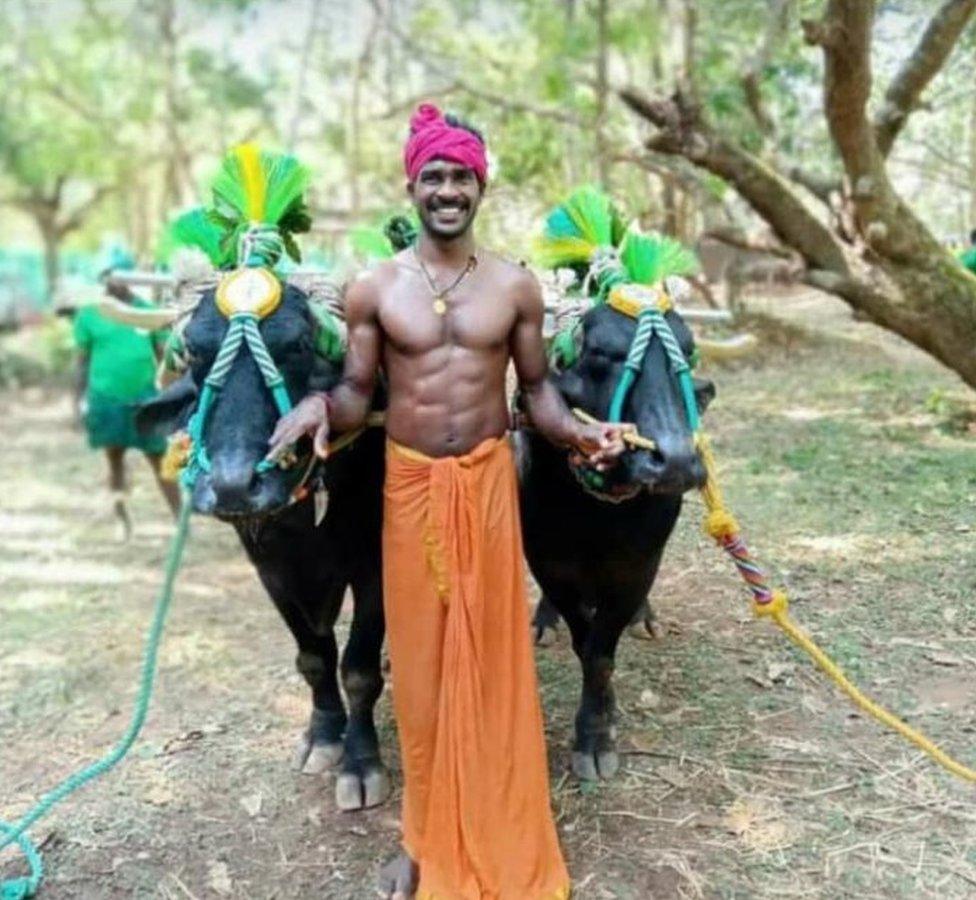
Mr Gowda praised his teammates - the two buffalo he ran alongside - for doing so well
Two years later, Karnataka's state court issued an interim order stopping all Kambala events.
Prof Kadamba said that the organising body had responded to this, updating the sport in order to make it more humane.
He said their current and former students - including Mr Gowda - are now taught how to deal with buffalo "in a humane manner without unnecessarily hurting the animal".
In 2018, the state started allowing Kambala races to take part again, but issued several conditions - including a ban on the use of whips.
But the practice is still under threat. International animal rights group Peta has a petition pending in the Supreme Court, arguing that Karnataka's reinstatement of Kambala was illegal.
- Published16 January 2018
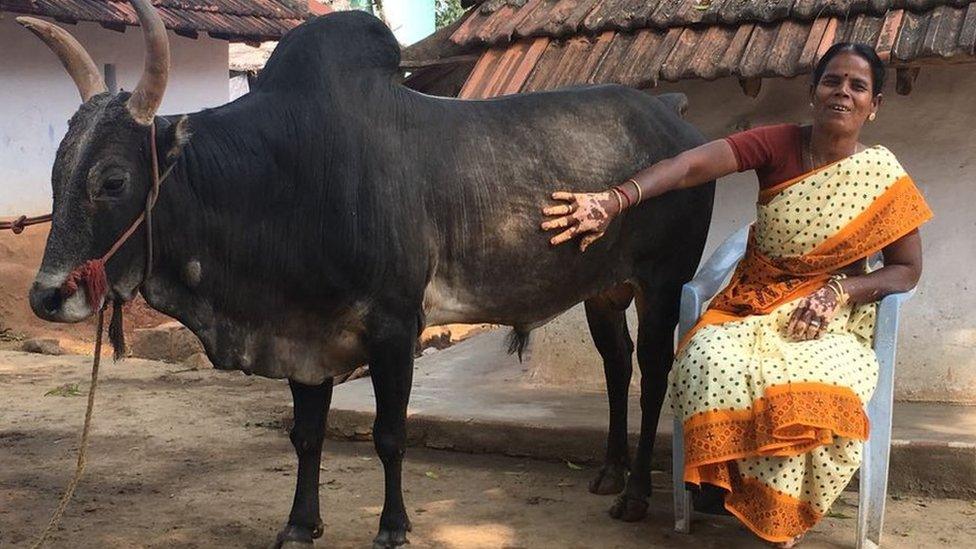
- Published7 January 2016
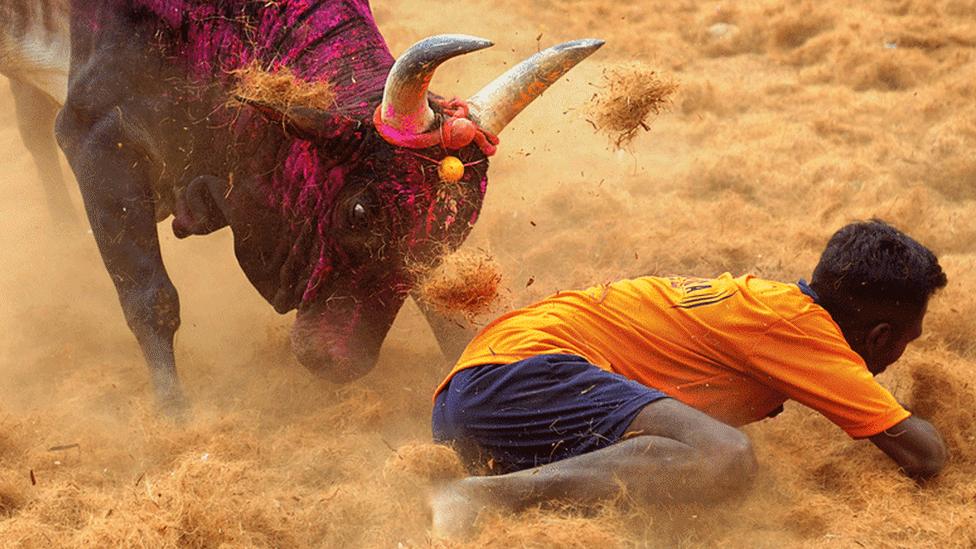
- Published18 January 2017
